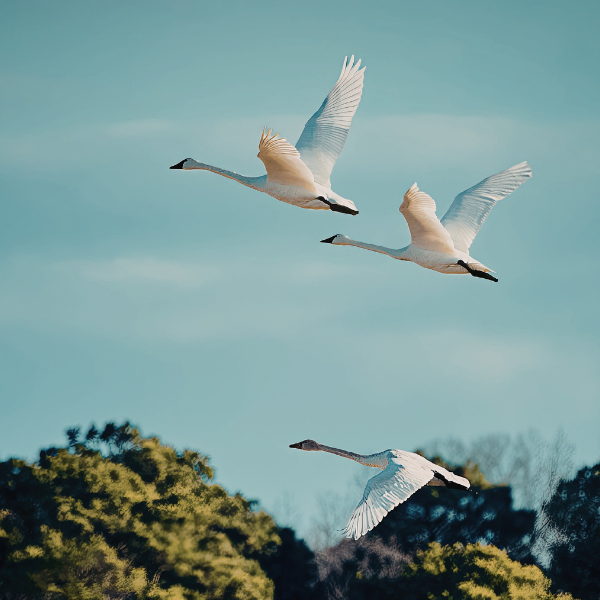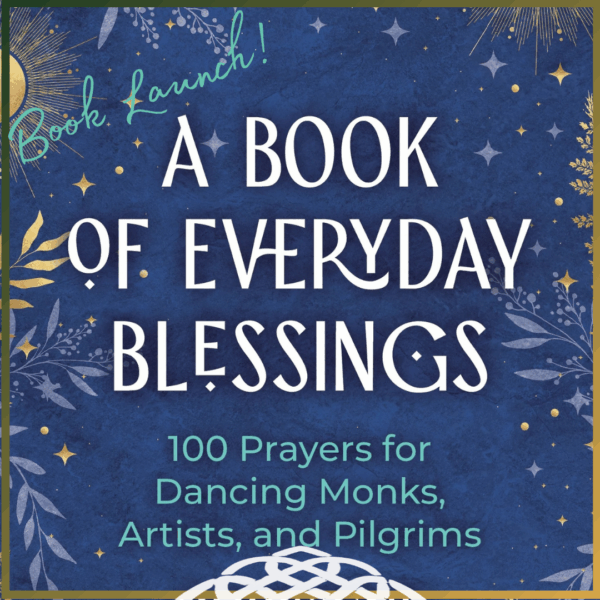Dearest monks, artists, and pilgrims,
On Saturday, March 11th we will be hosting a live hybrid retreat (in-person in Ohio or via online streaming.) Our theme is Monk in the World: A Day of Contemplation, Creativity, and Connection. Many of you have asked when we might be hosting opportunities to gather in person again and this is our first attempt in a very long time to give you the chance to be with other dancing monks and kindred spirits.
An online community is a strange and remarkable thing. We connect with fellow contemplatives and artists from all over the world and gather in virtual sanctuary spaces. This is an essential part of cultivating a way of life that is more present and attentive to the holy in each moment.
Theologian Edward Sellner writes, in his book Finding the Monk Within:
“To be a monk today or someone seeking to incorporate monastic values into his or her own life presumes being a part of a community of friends, people with whom a person can share the counsels of the heart and speak a language of the heart to one another.”
Traditional monasteries are built around the heart of shared community life. People would become monks as a way to live in an environment of support for contemplative living. In our modern world we often feel isolated from one another, and it can be challenging to find meaningful relationships centered around the spiritual life.
In the Celtic monastic tradition the soul friend was considered to be an essential companion on the spiritual path. A soul friend is someone with whom you can share deeply about your struggles for meaning and your longings for how to shape your life. Henri Nouwen describes such a friend as one “who can be silent with us in a moment of despair or confusion, who can stay with us in an hour of grief and bereavement, who can tolerate not knowing… not healing, not curing.” Soul friends offer us unconditional presence to whatever we may be experiencing. When we have this kind of relationship in our lives, it becomes easier for us to extend compassion to ourselves and others.
The spiritual life is meant to be lived in communion with one another, so as monks in the world, we have to create community in a variety of ways. Accountability and mutual encouragement is vital to sustaining contemplative and compassionate ways of being.
Many of us have multiple communities – I consider my primary community to be my marriage. This is the place of my most intimate encounters with another person. My husband supports me wholeheartedly and we also wrestle with one another at times, as we bump up against each other’s edges. I have a few very close friends with whom I can share my deepest struggles, who hold me lovingly in that space and witness my own unfolding. These are anam caras who support me in the realization of my dreams and challenge me in life-giving ways. I meet regularly with a spiritual director, a wise older man who has taught me much about being present to my dream life, my inner doubts and struggles, and the wisdom of my ancestors. The natural world is my community as well and often a place that meets me fully as I am.
Being a part of Abbey of the Arts means having a group of fellow pilgrims who are also seeking ways to live a meaningful life in a complex world through ancient practices, who don’t have easy answers, and who are willing to be alongside one another in my doubts and questions.
In Chapter Three of Benedict’s Rule he writes that when any important decision is to be made in the monastery, the whole community is gathered because God “often reveals what is better to the younger.” (RB 3:3) Sometimes our vision is clouded by our own expectations. Benedict invites us to welcome in the wisdom of everyone in our community. Often others can see aspects of ourselves that we cannot. You might ask someone you trust deeply to reflect back to you how they see your gifts at work in the world and the places where you seem to hold yourself back. Receive these words with reverence and humility, welcome in what they might have to teach you about your own creative journey.
In the desert, Celtic, and Benedictine traditions, it was also considered essential to have some kind of soul-level relationship with another person who was further along the path in conscious awareness and spiritual practice. Many of you are probably familiar with the Gaelic term anam cara which means soul friend.
In the 4th-5th centuries, St. Cassian went to the Egyptian desert to learn about the importance of an elder: “a wise, holy, and experienced person who can act as a teacher and guide for an individual or community.” Of the many graces of their spiritual lives, the desert monks believed that an experienced guide was the greatest gift. Abba was the term for male wisdom bearer and amma for female wisdom bearer. Cassian firmly believed that God’s guidance and wisdom comes most often through human mediation and the encounter with the desert elders. Age does not guarantee this kind of wisdom, but through a person who has been formed themselves in apprenticeship to another wise one.
An essential element of cultivating our capacity to listen is seeking out wise elders and mentors in our lives. Consider if there is someone in your life who lives with creative vitality and contemplative presence. Invite them into conversation about the ways in which they sustain themselves and nurture their way of being in the world.
Gather together with us in March as we nurture community with one another. You can choose to join us in person in Ohio (with Jamie Marich, Simon de Voil, and Melinda Thomas hosting live and I will be joining via Zoom from Ireland). Register by February 5th if you want to join us in-person so we know if we have enough numbers to go ahead.
Join Simon tomorrow for his Taize-Inspired Sacred Chant and Therese on Wednesday for Centering Prayer.
With great and growing love,
Christine
Christine Valters Paintner, PhD, REACE
Image: Paid License with Canva



